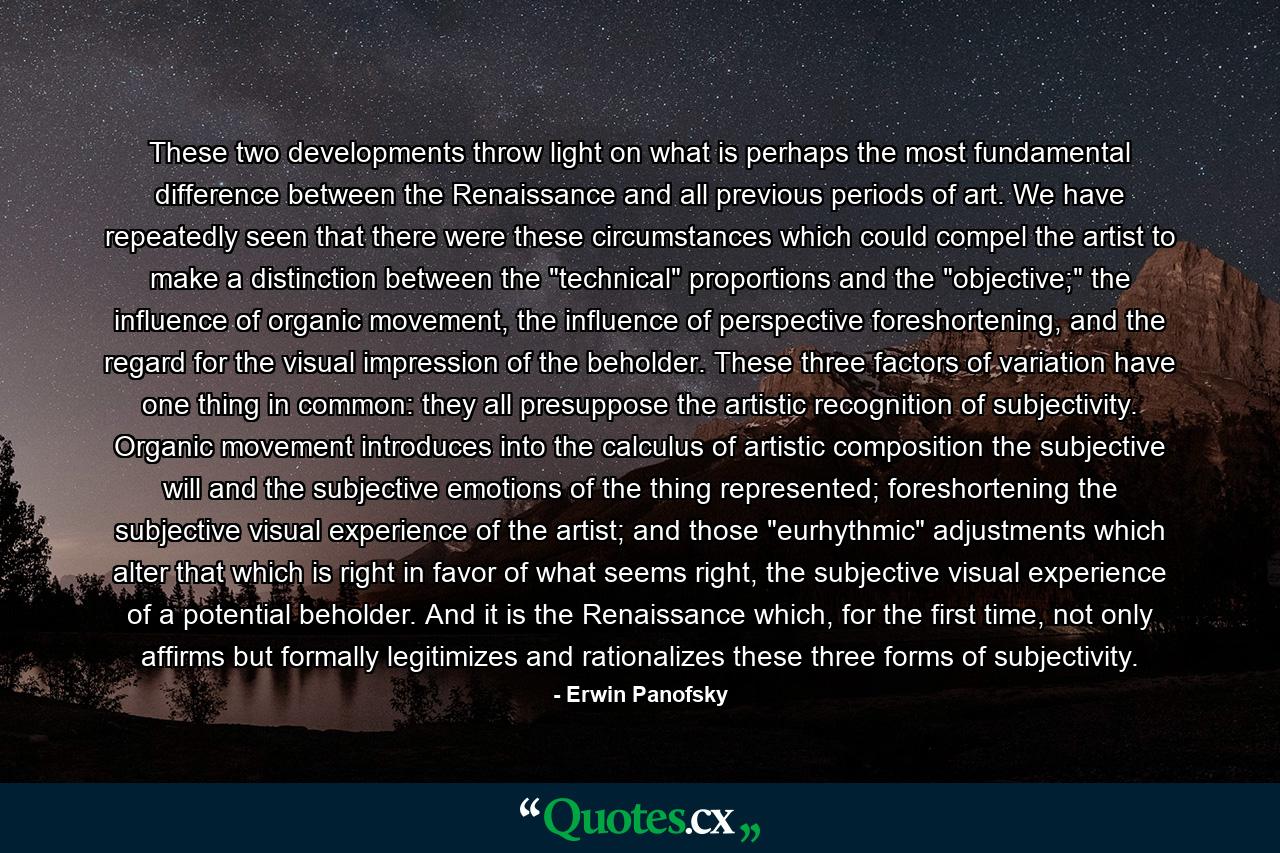These two developments throw light on what is perhaps the most fundamental difference between the Renaissance and all previous periods of art. We have repeatedly seen that there were these circumstances which could compel the artist to make a distinction between the “technical” proportions and the “objective;” the influence of organic movement, the influence of perspective foreshortening, and the regard for the visual impression of the beholder. These three factors of variation have one thing in common: they all presuppose the artistic recognition of subjectivity. Organic movement introduces into the calculus of artistic composition the subjective will and the subjective emotions of the thing represented; foreshortening the subjective visual experience of the artist; and those “eurhythmic” adjustments which alter that which is right in favor of what seems right, the subjective visual experience of a potential beholder. And it is the Renaissance which, for the first time, not only affirms but formally legitimizes and rationalizes these three forms of subjectivity.
